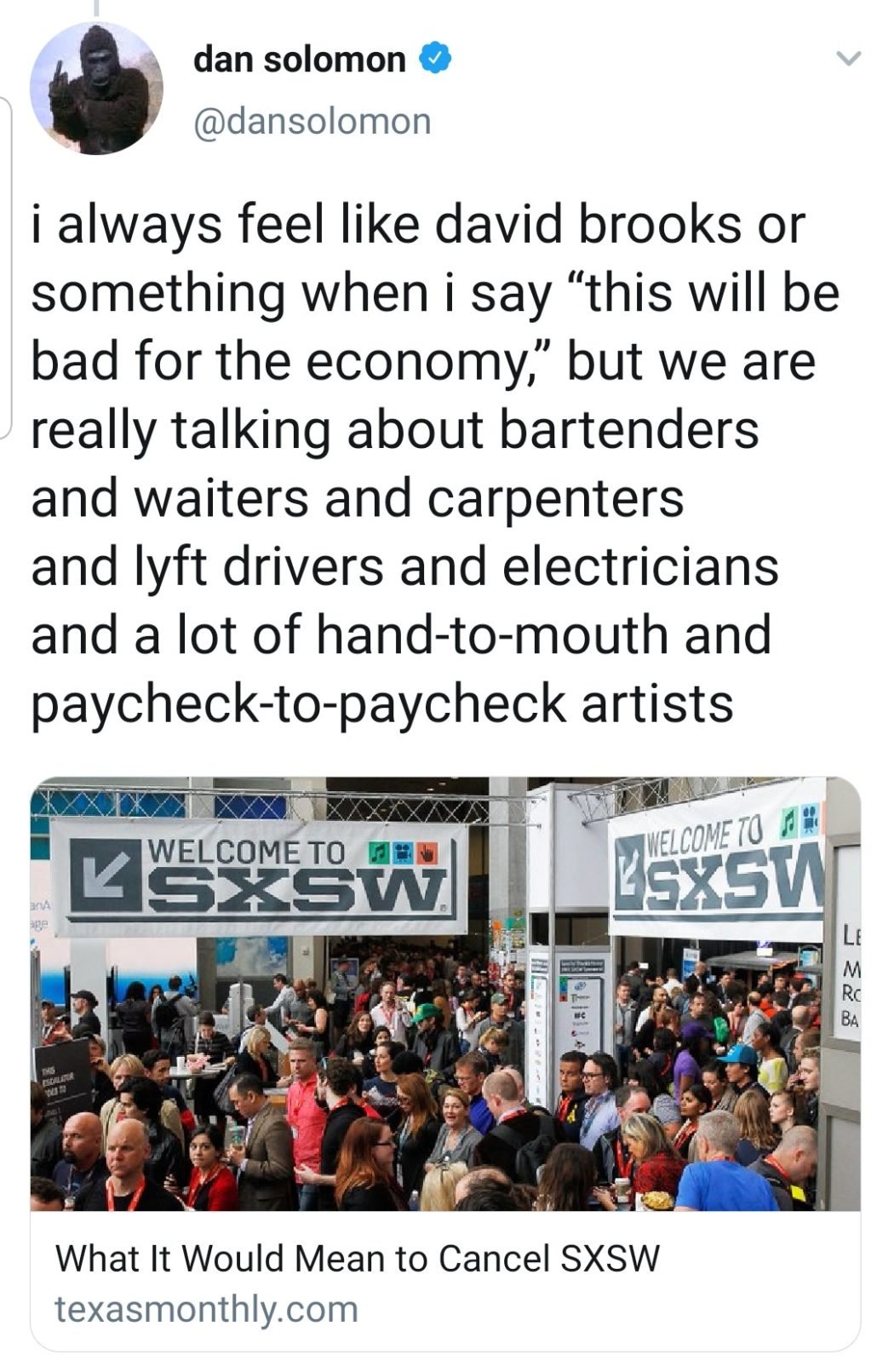Over the past couple of weeks we’ve seen large events cancelled or postponed indefinitely during the coronavirus outbreak, and most likely we’re going to see more of such cases in the near term. I think no need to describe how challenging the times are for the events industry and – given how huge its economic and social impact of just one event can be – basically, for everybody else. I find this tweet very telling.

There are many things that we as industry are discussing now. I recently sat with Attendify team to discuss some actionable tips from event psychology perspective, and one of the things we talked about was transition from a live event to a virtual version and some obvious practical challenges for such rapid and imposed change. I’d like to elaborate more on one of the points I made during that discussion, namely – our perception of such change. Although to a large extent it’s true virtual can not replace live, I believe we should really re-consider how we think about it – and here is where behavioral science can help us understand how.
From all discussions going on around it seems like virtual version is perceived as a forced step during coronavirus disaster, and is offered as a lower-grade way to provide the promised experience. But is it so? Aren’t we capable, in fact, to provide great experience with online event?
In fact, we are. We’ve got a lot of experience and great tech in place, and the fact that virtual events were not as common as live does not mean virtual are a worse option. It’s just different, in some ways completely different – but that’s the beauty of it which we should communicate to attendees and first, to ourselves.
To change how we communicate it, let’s turn to behavioral science concept of framing which is presenting something from a different perspective. Framing concept refers to how we make decisions and choices and was described in 80s by Nobel winner Daniel Kahneman and Amos Tversky. They say, “The psychological principles that govern the perception of decision problems and the evaluation of probabilities and outcomes produce predictable shifts of preference when the same problem is framed in different ways”. In series of experiments presenting people with different problems and solutions to choose from (first of which – odd coincidence – is about an outbreak of “unusual Asian disease”*) they found out that 72% of people choose positively framed options.
Kahneman and Tversky say, “It is often possible to frame a given decision problem in more than one way”, and that’s the essence of what framing is. A more ordinary-life example, when people got to choose ground beef labelled as ‘90% fat-free’ or ‘10% fat’ they chose the former – despite the fact both means the same thing! That’s the type of thing we need to understand about how human’s brains work, and rely on it when need is – like now. So how is it relevant to switching from live to virtual events?
The short answer is: when communicating such transition, frame it in a positive way. Clearly, it’s a challenge, both for planners and attendees of their events. However, framing it as not a loss but rather as an opportunity will help you facilitate that change and make this process much smoother. Because, at the end of the day, it IS an opportunity if you look at it closely: an opportunity to try out new formats and innovate, to engage those who otherwise would not be engaged; to attract more of your target audience; to collect more data.
And for some inspiration, have a look at this post – a telling example of positive framing. Even if that event were not free, it’s a smart way of highlighting positive side of things first rather than announcing sad news (which all are somewhat expected anyway) and adding another negative emotion on the top of everything else related to coronavirus.

*Description of the problem from the research paper: “Problem 1 [N = 1521: Imagine that the U.S. is preparing for the outbreak of an unusual Asian disease, which is expected to kill 600 people. Two alternative programs to combat the disease have been proposed. Assume that the exact scientific estimate of the consequences of the programs are as follows: If Program A is adopted, 200 people will be saved. [72 percent] If Program B is adopted, there is 113 probability that 600 people will be saved, and 213 probability that no people will be saved. 128 percent] Which of the two programs would you favor?”



